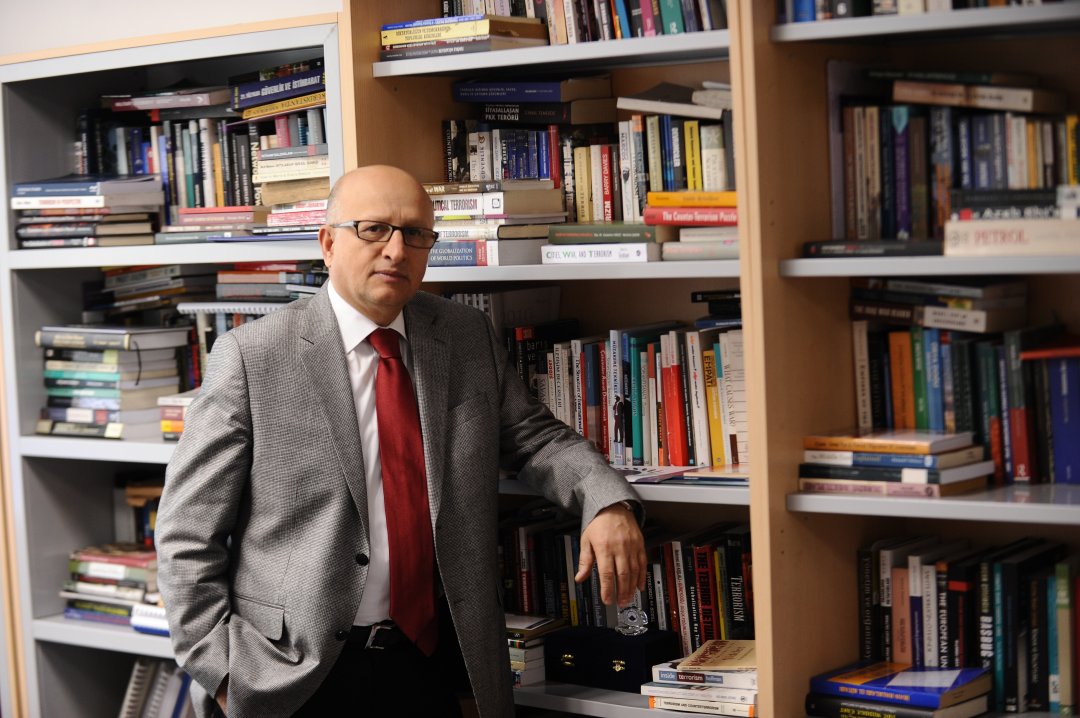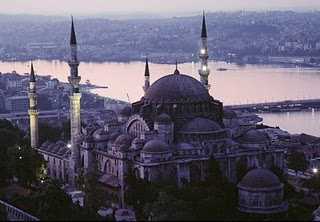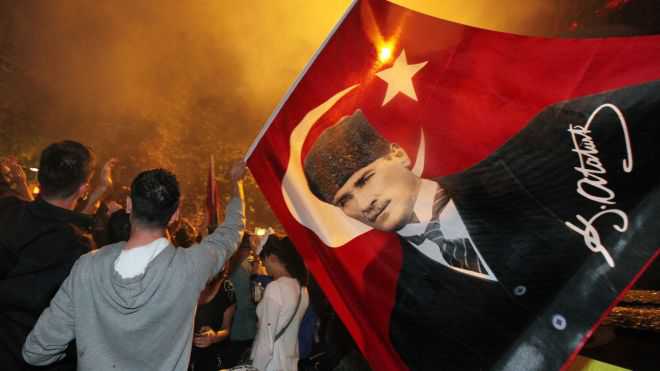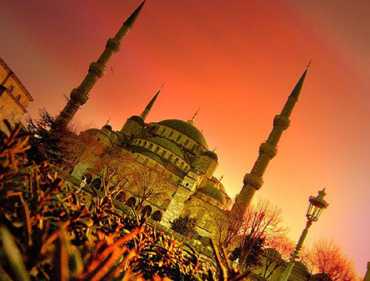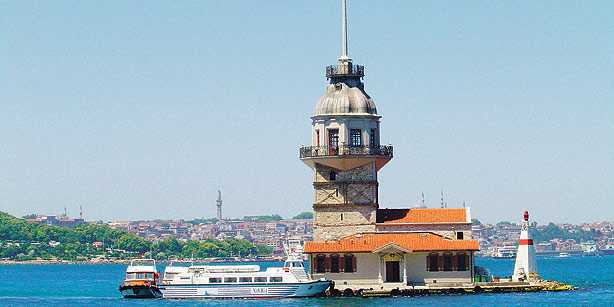PKK Party Congress Sets Long-Term Strategy Based on Threat Perceptions
By Nihat Ali Özcan, Saban Kardas
The Kurdistan Workers’ Party (Partiya Karkeren Kurdistan – PKK) was established in 1973 against the background of Cold War politics. In the formation of the PKK’s institutional culture and practices, the prevailing Marxist ideas and strategies adopted by other leftist movements of the time played a major role in their ideology. Influenced by the experiences of various Marxist organizations around the world, the PKK’s organizational structure was based on three pillars: a party organization acting as the ideological center and running the movement according to strict hierarchical rules, a military wing to carry out subversive military activities, and a “front” organization to oversee the activities of all PKK supporters in both legal and extralegal domains. Even after the Cold War came to an end, the PKK maintained its adherence to these institutional practices and behavioral habits. In this essay, we will evaluate one of the deep-seated practices of the PKK, party congresses. In particular, we will examine the PKK’s threat perceptions as reflected in the conclusions of the tenth party congress, held on August 21-30 in shelters in the mountainous terrain of northern Iraq. We will also discuss the PKK’s response to these challenges in the context of recent developments.
The Role of Congresses in the PKK’s history
The PKK has sought to project itself as more than a mere armed organization terrorizing a local population to reach some short-term goals. On the contrary, it defines itself as a party advocating a well-established political program through the application of a long-term strategy. To preserve this image, the PKK went to great lengths to hold party congresses even under dire circumstances. PKK congresses have served as a platform for evaluating the organization’s performance during previous years, assessing the existing situation and setting the agenda of the organization for subsequent years. So far, the PKK has held ten congresses. Although the organization has sought to hold its congresses approximately every five years, in some cases it convened extraordinary meetings. Since it had its first congress in Turkey in 1978, the PKK has convened two congresses in Lebanon, four in Syria and the latest three in northern Iraq.
Prior to the actual PKK congresses, militants conduct preliminary meetings in their respective regions to determine the agenda of the convention, as well as select the delegates who will attend. The ceremonial value attached to them aside, the congresses perform three main functions. First, in addition to reaffirming the loyalty of the delegates to the imprisoned leader, Abdullah Ocalan, they help incoming members of the organization’s leadership cadres solidify their legitimacy. Second, members of the PKK assess the organization’s past activities, as well as the state of political and military conditions prevailing in the region and discuss new strategic goals and alternative instruments for future activities. These deliberations are conducted under the influence of a dogmatic attachment to Marxist principles. Third, by utilizing the milieu of the conferences, the PKK seeks to foster a sense of motivation among the members while boosting their morale.
The conduct of delegates at congresses helps sustain the internal legitimacy of leadership cadres in several ways. Abdullah Ocalan has been the unchallenged and unquestioned leader of the PKK in all these gatherings. Over time, he has come to assume a symbolic role as the unifying element of the entire movement, and as such a “personality cult” was created around his name. According to the established practice in congresses, the members of the organization, except for Ocalan, engage in self-criticism before their comrades; they reflect on their past mistakes and acknowledge their weaknesses in fulfilling their duties. In essence, these almost ritualistic acts serve to shake the reliability of the leading figures of the PKK other than Ocalan before other delegates. As a result, through the discussions as well as ceremonies during the sessions, the congresses not only legitimize the leadership cadres but also ensure the continuation of the organization’s loyalty to the leader.
Another function of the congresses is their role in providing a platform for analyzing the past, present and future conditions of the organization in line with its ideological disposition. In general, despite the drastic changes in world politics, the PKK’s discourse is still heavily influenced by Marxist thinking. For instance, it is commonplace to hear criticisms of capitalism in congresses. Similarly, the members of the organization seek to demonstrate their comprehension of Ocalan’s teachings through bombastic flattery of their leader. The rulings concerning the future direction of the organization are also framed in line with its ideological discourse. Therefore, decisions taken at congresses have strategic value for the evolution of the organization. The PKK publishes the conclusions of congresses in print or on the internet to communicate its goals to the public. [1]
Lastly, congresses help motivate members of the organization. The proceedings of congresses contain short, clear and effective slogans to mobilize members. Following congresses, militants accelerate their attacks to demonstrate their loyalty to the organization and their determination to carry out the conclusions.
Of the ten congresses the PKK has held so far, the following stand out in particular: The third congress held in 1982 called for the return of the PKK militants from Lebanon to Turkey to initiate an armed struggle against the state. The fifth congress in 1995 prioritized the political struggle over the armed struggle. The eighth congress of 1999 decided to cease terror attacks following Ocalan’s capture and the ninth congress of 2005 agreed to halt attacks against Turkish security forces. Such decisions have marked important turning points in the PKK’s overall strategy.
Decisions of the Tenth Congress, August 2008
The PKK convened its latest congress in northern Iraq on August 21-30. Delegates met in mountain shelters under the threat of airstrikes from Turkish jetfighters. In the traditional spirit of the congresses, the latest gathering declared the forthcoming period as “Freedom to Ocalan.” The tenth congress also maintained the tradition of assessing the past, present and future of the organization. The statements following the congress indicate one of the biggest current sources of concern is the new situation created by the meeting between Turkish Prime Minister Recep Tayyip Erdogan and U.S. President George Bush in November 2007. [2] After this meeting, the United States started to share actionable intelligence with Turkey, with alarming results for the PKK. The closing statement of the congress maintains that the United States, along with Turkey and Iran, is determined to eliminate the PKK.
The PKK’s major concern appears to be the decision of the Barzani-led Kurdistan Regional Government (KRG) to reconsider its relations with the PKK, which may result in it abandoning the PKK (Firat Haber Ajansi, September 8). If the KRG indeed withdraws its support from the PKK, this development will likely have a grave impact on the organization’s use of the terrain of northern Iraq as a safe haven. So far the PKK’s activities in this region have been largely unhindered, which at times has led the Turkish government to accuse the KRG of actively supporting the PKK. Nonetheless, the PKK is uneasy about prospects for U.S. pressure on Barzani as well as a possible rapprochement between Turkey and Barzani (Referans, October 14). To forestall such scenarios, the PKK congress expresses its support for Barzani on the Kirkuk question (Firat News Agency, September 8).
The conclusions of the congress also indicate that the PKK is concerned about the fate of its “front” organization (Firat News Agency, September 8). PKK supporters established various associations and political parties in the legal domain to advocate for Kurdish nationalism and compete in Turkish electoral politics. Since entering the legal political sphere in the 1980s, Kurdish nationalists have operated a series of political parties such as the Democratic Party (DEP) and the Democratic People’s Party (DEHAP), a new entity arising each time the last manifestation was shut down by the state. The most recent of these is the Democratic Society Party (Demokratik Toplum Partisi – DTP), founded in 2005. These groups nonetheless maintained organic ties with the PKK, steadfastly refusing to condemn PKK violence. The legal advocates of ethnic nationalism benefited from the violence as fear became an important factor in mobilizing people around their agenda. Continued connections or support for the PKK eventually led the Turkish state to close down many of these organizations. Despite continued protestations from DTP leaders that they do not act as a front for the PKK, the party has recently faced court proceedings designed to shut it down. At a recent meeting with three leading DTP MP’s, Deputy Prime Minister Dengir Mir Mehmet Firat (himself of Kurdish origin) told the MP’s, “We know your reality. The type of relations you have with the PKK are an obstacle for the prime minister’s efforts to implement solutions to the problem. We want you to recognize the PKK as a terrorist organization” (Hurriyet, October 19).
As a matter of fact, the threat to the PKK’s front organizations was unwittingly aggravated by its decision to refrain from attacking civilians following the 9/11 terror attacks in order to cultivate a more sympathetic image (Ozgur Politika, March 14, 2002). Having lost the leverage of being able to “penalize” civilians, the PKK encountered serious problems in disciplining its front organizations. The most common problems were encountered in mobilizing people for street demonstrations or providing logistical support for armed militants (Firat News Agency, September 18). Having been freed from fear of punishment, the priorities of sympathizers changed during the calm years between 2001 and 2005. They started to ignore the demands of the organization. To avoid this handicap, the PKK set up more militant shadow organizations (such as the Freedom Hawks of Kurdistan) and sought to motivate its supporters and terrorize its opponents. In some cases, the PKK executed civilians on charges of being government agents (hezaciwanan.com, August 11, 2004). The conclusions of the tenth congress show that the PKK is eager to regain the leverage of punishment, threatening cadres that have failed to conform to the organization’s ideology (Firat News Agency, September 18).
The final statement of the congress, as well as ensuing developments, show that the PKK perceives another serious threat to its front organization: the growing power of the governing Justice and Development Party (Adalet ve Kalkınma Partisi -AKP) in the region as the March 2009 municipal elections approach (Milliyet, October 21). Current predictions indicate that the DTP, which currently controls municipalities in several cities such as Diyarbakir, will face a serious challenge from the AKP. Losing municipalities may cost the PKK dearly; even if its front organization avoids a total collapse, it will still face a severe crisis. Maintaining control over local municipalities is crucial, not only because they provide material resources to the organization and boost its supporters’ morale, but also because a political presence helps build the legitimacy of the movement domestically and internationally.
A parallel development further disturbed the PKK. The new Turkish Chief of Staff Ilker Basbug, unlike his predecessors, has sought to establish channels of communication with local people in southeastern Turkey. Moreover, Basbug has drawn attention to the economic and social problems in the region. Perceiving this outreach as a threat to its interests, the PKK threatened those people who attended a meeting Basbug held with the representatives of various NGOs in Diyarbakir. [3]
Threats to Survival
In short, the PKK seems to perceive threats to its survival both inside Turkey and in northern Iraq. Its assessment of current threats – namely, the prospect that the PKK may lose its safe havens in northern Iraq and the challenges posed by upcoming municipal elections and other local developments to its front organization – led the delegates attending the tenth congress to focus on two alternatives: first, increasing the medium-intensity armed attacks; second, revitalizing mass public demonstrations in urban areas, marked by the visible attendance of women and children (Firat News Agency, September 18 ). Through these moves, the PKK plans to raise the tension in the run-up to the municipal elections and mobilize people along ethnic lines. It expects that if the people are confronted with the brutal face of the state, they will cast their votes based on ethnic identity. This mode of thinking largely explains the aggressive attitude the PKK has adopted lately, through intensifying its attacks on Turkish security forces and agitating Kurdish people in southeastern Turkey and the major cities in western Turkey.
This new strategy was put into effect shortly after the congress. The number of terror incidents increased dramatically; between August 30 and October 20, around 180 attacks were reported, the most notorious being the one against the Aktutun border station on October 3, which took the lives of 17 Turkish soldiers (www.tsk.mil.tr; see also Terrorism Focus, October 21). At the same time, the PKK was successful in mobilizing civilians. To protest Prime Minister Erdogan’s trip to Diyarbakir, PKK sympathizers organized illegal demonstrations in various cities on the grounds that Ocalan was mistreated in prison, which disrupted provision of basic services in many places. DTP deputy Emine Ayna stated, “Ocalan is seen as a leader by many Kurds. If there is any physical violence toward him, this violence is directed at Kurds” (Turkish Daily News, October 23). With demonstrators threatening local businesses into shutting down their shops, the municipalities controlled by the DTP did not collect garbage and halted public transportation as part of the PKK’s protest of the AKP (kanaldhaber.com, October 20).
Conclusion
To counter the political and military threats from inside and outside Turkey, the PKK has initiated proactive policies in line with the conclusions of the tenth congress. If it fails to mobilize ethnic sentiments among Kurdish speaking constituents, the DTP might have to concede electoral success in the 2009 municipal elections to the AKP, which has been making political inroads in southeast Turkey. Recent developments highlight the PKK’s determination to raise tensions in Turkey to reverse this process.
Notes:
1. For instance, see: Abdullah Ocalan, PKK 4. Kongresine Sunulan Politik Rapor (Istanbul: Zagros Yayinlari, 1993); Abdullah Öcalan, PKK 5. Kongresine Sunulan Politik Rapor (Istanbul: Gunes Ulkesi Yayinlari, 1995); Abdullah Öcalan, PKK Olaganustu 7. Kongresine Sunulan Politik Rapor (Istanbul: Mem Yayinlari, 2000).
2. For Murat Karayilan’s statements, see Firat News Agency, September 18.
3. For Basbug’s meetings, see Radikal, September 5 and Terrorism Focus, September 24; for the PKK threat, see Firat Agency, September 18.

